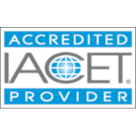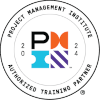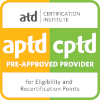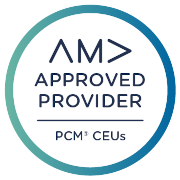Certificate Suite Details
Key Features
- Mobile-friendly
- Audio-enabled
- Badge and credit-awarding
- Real-world case studies
- Fully accessible
- Expert-supported
- Games & Flashcards
- Video content
Certificate Preview
Certificate Description
Learner Feedback
Courses Included in this Certificate
Course Description
Financial statements can look intimidating and, as a non-financial manager, you may feel like ascertaining the right conclusion from a financial statement is like finding a needle in a haystack. This course covers financial reports and their meaning. You will learn the fundamentals and importance of the income statement, balance sheet, and statement of cash flows, and how they can be used to manage a business. You will also be exposed to financial (ratio) analysis.
Course Credits
Course Description
Understanding basic finance is important for any managerial position, even non-financial managers. This introductory-level course starts at the beginning, discussing finance as an organizational setting and legal forms of business. The course continues on to cover the responsibilities of financial managers, roles of finance in a typical business organization, and relevant financial markets of interest to financial managers. Further, the course will discuss corporate financing and the role the stock market plays in the business world.
Course Credits
Course Description
Statistics is the science of collecting, organizing, and analyzing data in order to make more effective decisions. As such, statistics is critical to a successful business. This introductory-level course is meant for non-financial managers. Understanding statistical techniques can help any manager responsible for marketing, management, accounting, sales, or other business functions. This course will also cover graphical representations of data that your stakeholders may expect when reviewing the results of any statistical analysis.
Course Credits
Course Description
Decision-making within an organization often hinges on the numbers. So what financial tools do managers need to be familiar with to make sound, defensible decisions? This introductory-level course is meant to teach finance concepts to non-financial managers, and considers tools for decision-making such as cost benefit analysis, break even analysis, and Balanced Scorecard. The course also teaches the basic finance concepts such as return on investment (ROI), fixed and variable costs, and payback period.
Course Credits
Course Description
Is a dollar more valuable today or tomorrow? What about a year from now? This introductory-level course covers time value of money (TVM) principles and risk and return. You will review the basic TVM techniques used in evaluating all financial decisions and their cash flow implications. For Risk and Return, you will learn how risk influences investment decisions, and how to calculate risk and rates of return. Further, you will explore the benefits of diversification and the use of the portfolio concept in investing.
Course Credits
Course Description
A budget is a detail of expenses and incomes for a set period of time. This introductory-level course covers budgets and how they are used in organizational settings including the uses and functions of master budgets, operating budgets, sales, production and cost of goods sold budgets, and cash budgets. You will also learn about the budgeting process, and how organizations are using different budgeting techniques to overcome operating challenges.
Course Credits
Notes
This course has an "Ask the Expert" feature, which submits your questions directly to an expert in the field you are studying. Questions are answered as quickly as possible and usually within 24 hours.
As an Accredited Provider, MindEdge offers for its learning events that comply with the Continuing Education and Training Standard.
Learners must achieve an average test score of at least 70% to meet the minimum successful completion requirement and qualify to receive credit. Learners will have three attempts at all graded assessments.
Project Management Institute, , the Registered Education Provider logo, Project Management Professional, , Project Management Body of Knowledge, , Agile Certified Practitioner, -, Risk Management Professional, -, the Talent Triangle, and the Talent Triangle logo are marks of the Project Management Institute, Inc.
Information in this course has been taken from A Guide to the Project Management Body of Knowledge, (® Guide) - Sixth Edition, Project Management Institute Inc., 2017.
The following list outlines the you will earn for completing this course, based on the certifications you have.





